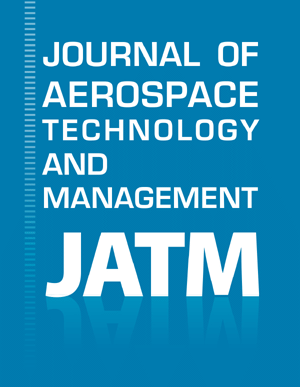ABSTRACT:
Recently, there has been a growing interest in studies concerning ionization sensors for aerospace applications, power generation, and fundamental research. In aerospace research, they have been used for studies of shock and detonation waves. Two key features of these sensors are their short response time, of the order of microseconds, and the fact that they are activated when exposed to high temperature air. In this sense, the present paper describes the development of an ionization sensor to be used in shock tube facilities. The sensor consists of 2 thorium-tungsten electrodes insulated by ceramic, with a stainless steel adapter for proper mounting, as well as 2 copper seal rings. An electrical circuit was also built with 2 main purposes: to provide the electrodes with a sufficient large voltage difference in order to ease ionization of the air and to assure a short time response of the sensor. The tests were carried out in a shock tube with the objective of observing the response of the sensor under stagnation conditions. For that, we chose initial driven pressures of 1.0; 1.2 and 1.5 kgf/cm2, with a constant driver pressure equal to 70 kgf/cm2. We analyzed the response of the sensor as a function of the initial driven pressure, stagnation temperature, and density. For the studied conditions, the results showed that the mean amplitude of the ionization sensor signal varied from 8.29 to 19.70 mV.
KEYWORDS:
Ionization sensors; Shock tubes; Shockwaves











